The Senate’s Meme Ban is Worse
We're monitoring the situation.
Texas politicians are trying to regulate memes under the guise of protecting the poor, innocent voters from “altered media” and “false sources.” There are currently no legal consequences for politicians who say false things about the legislation they are attempting to pass, and one can’t help but wonder why Austin lawmakers are so intent on controlling the narrative by requiring weird disclaimers on memes.
Representative Pat Curry posted a statement about his vote to support Dade Phelan’s meme regulation.
In his statement, which was seen by over 41,000 people on X at the time of writing, Curry states HB 366 “doesn’t affect satire or jokes.” However, no such language is found referencing satire or jokes in the HB 366 he voted on.
This is a prime example of a campaign advertisement with false information about an event that did not occur in reality, with its intended purpose to deceive the voters in future elections. Even though voters can research his claim themselves, it’s a matter of honesty and integrity that we put a giant disclaimer on his post stating the vote he described “did not occur in reality.”
The excuse for trying to regulate memes comes from the following mailer, which was widely reported as being a “deep fake.”
Zero evidence has been produced to demonstrate this photoshopped image was created using “artificial intelligence,” and yet lawmakers are saying it alone is the reason for a flood of confusing new regulations targeting political speech.
In fact, Representative Tinderholt asked Phelan on the House floor whether the bill number, 366, was a reference to his election night victory of 366 votes where Phelan somehow overcame the photoshopped flier.
His response?
That event in the meme occurred in reality, only he wasn’t drinking a Pepsi. Would this satirical meme be allowed on a mailer? It’s unclear. Thankfully, the Senate has a plan for the government to decide.
The Senate version of the Meme Ban mentions satire 3 times. Passing with bipartisan support, both parties are suddenly very conservative in trying to preserve the exclusive right to mislead voters. The Senate’s bill is actually worse than Phelan’s current bill.
SB 893, which passed the Senate unanimously in March (h/t BJ) seeks to give the government the power to decide when a meme is satire.
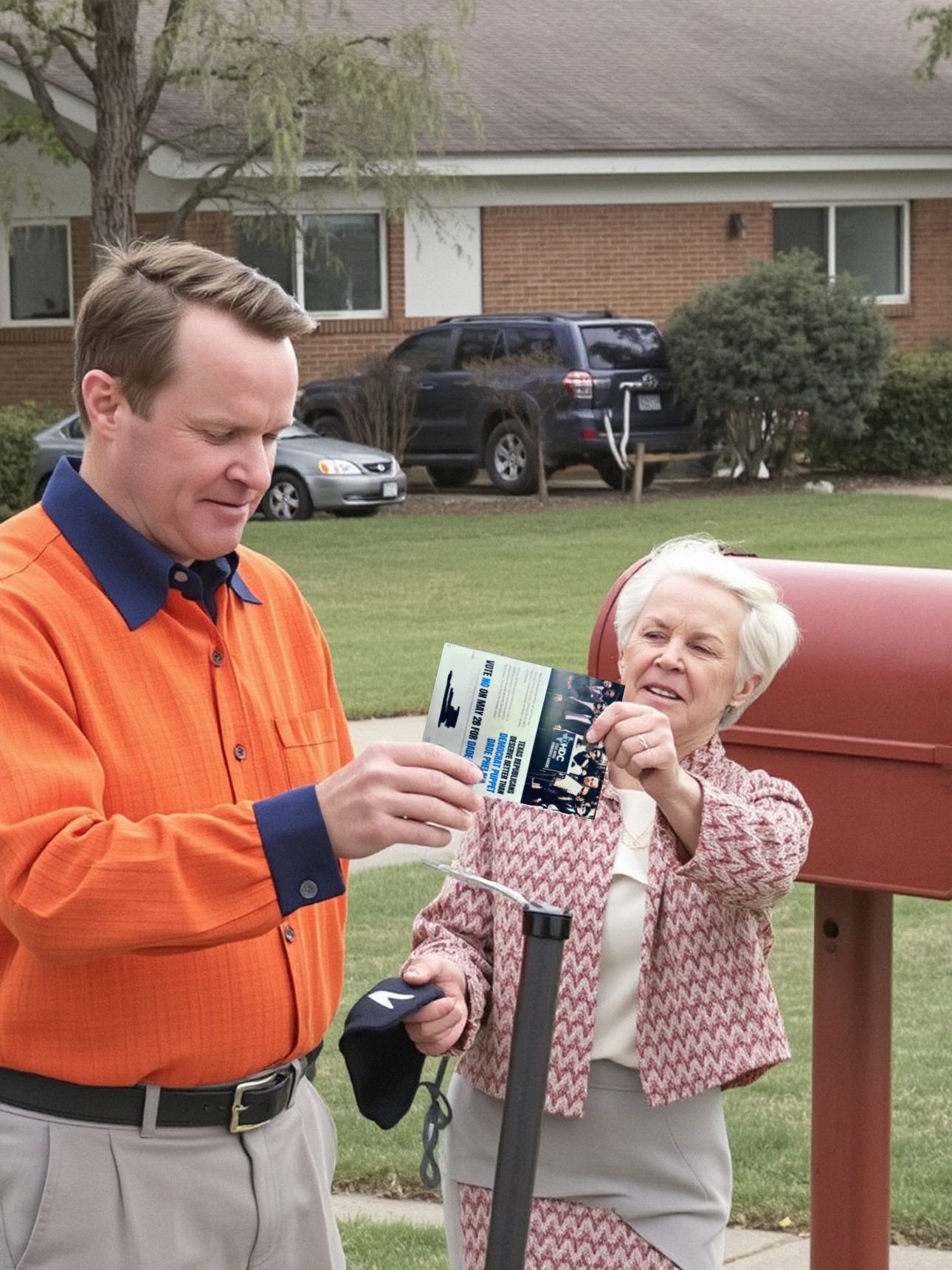
In the Senate’s version of the meme ban, your grandma will likely be hit with a class B misdemeanor for sharing memes online—This bill is one of those—it applies to everyone, and uses even broader language outlawing memes, regulating the use of “altered images” to describe “change[ing] the physical appearance of an individual.”
‘“Altered image’ means an image that has been manipulated to change the physical appearance of an individual…”
If this is applied to candidates and elected officials, this might make most women in Texas politics a criminal on day 1, and we will be encouraging everyone to file complaints against their political enemies who use photoshop to enhance their appearance in photos without using the proper disclaimer, in accordance with the letter of the law.
We might need to regulate politicians using old photos of themselves as well, as there may be an intent to mislead voters by using a 20 year old photo. Although, it’s well known that photos that look old are more likely to be real.
The Senate’s meme ban mentions satire three times, unlike the House version—which mentioned it zero times.
Comparing the Senate version of the meme ban and Representative Curry’s misleading comments about what occurred in reality with his vote, it appears the politicians in Austin are now taking us down the path of having the government decide what is “reasonable” when it comes to memes.



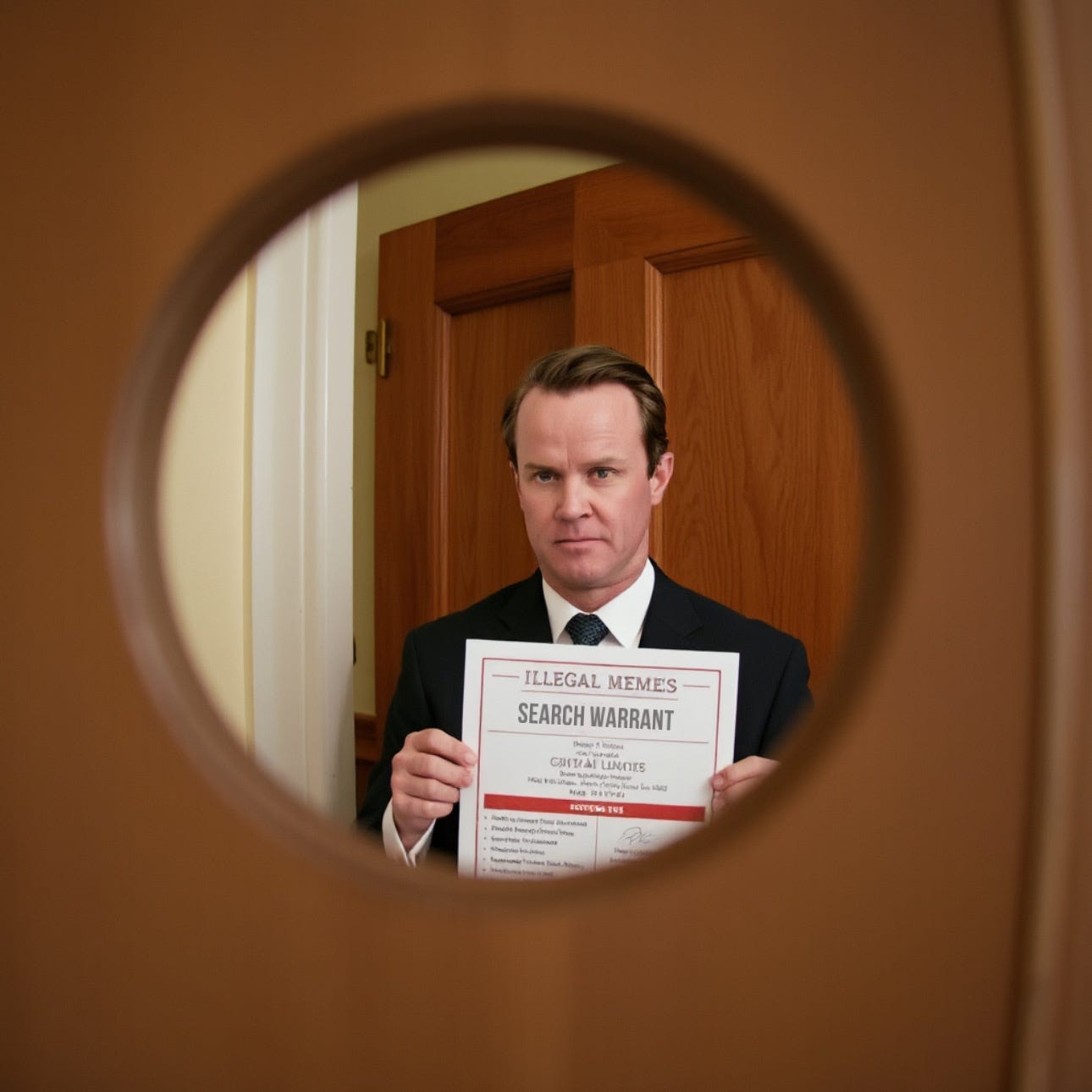
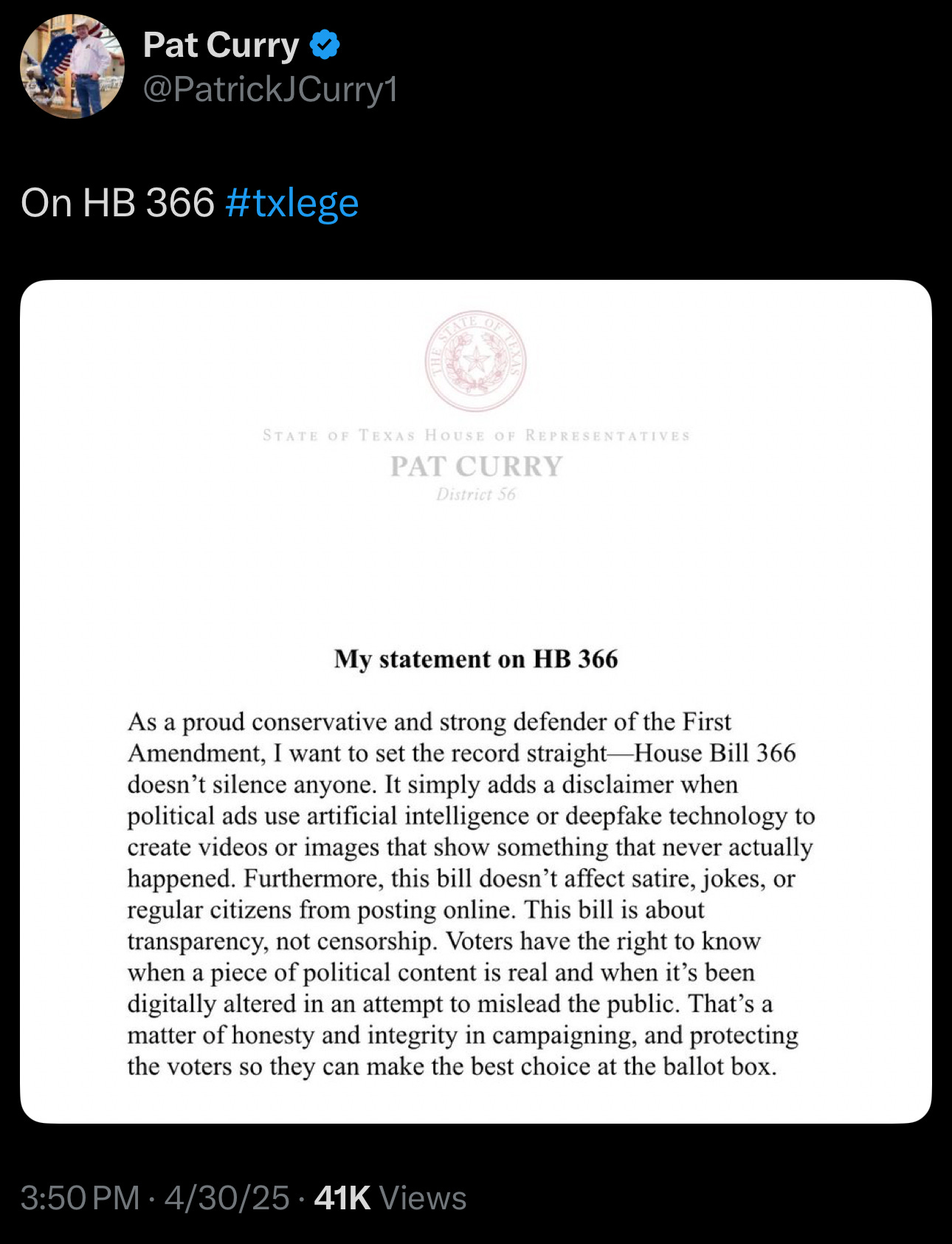


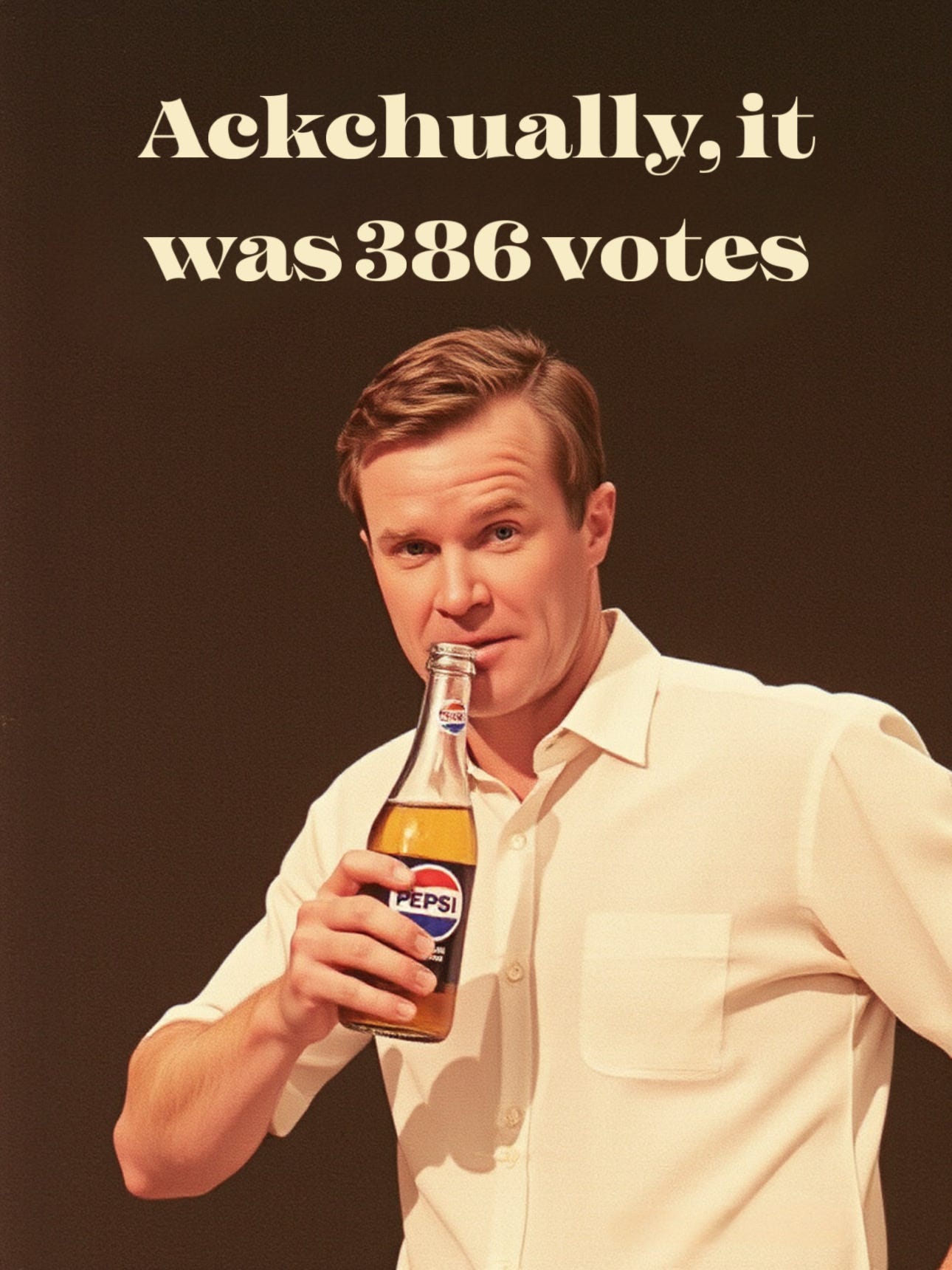
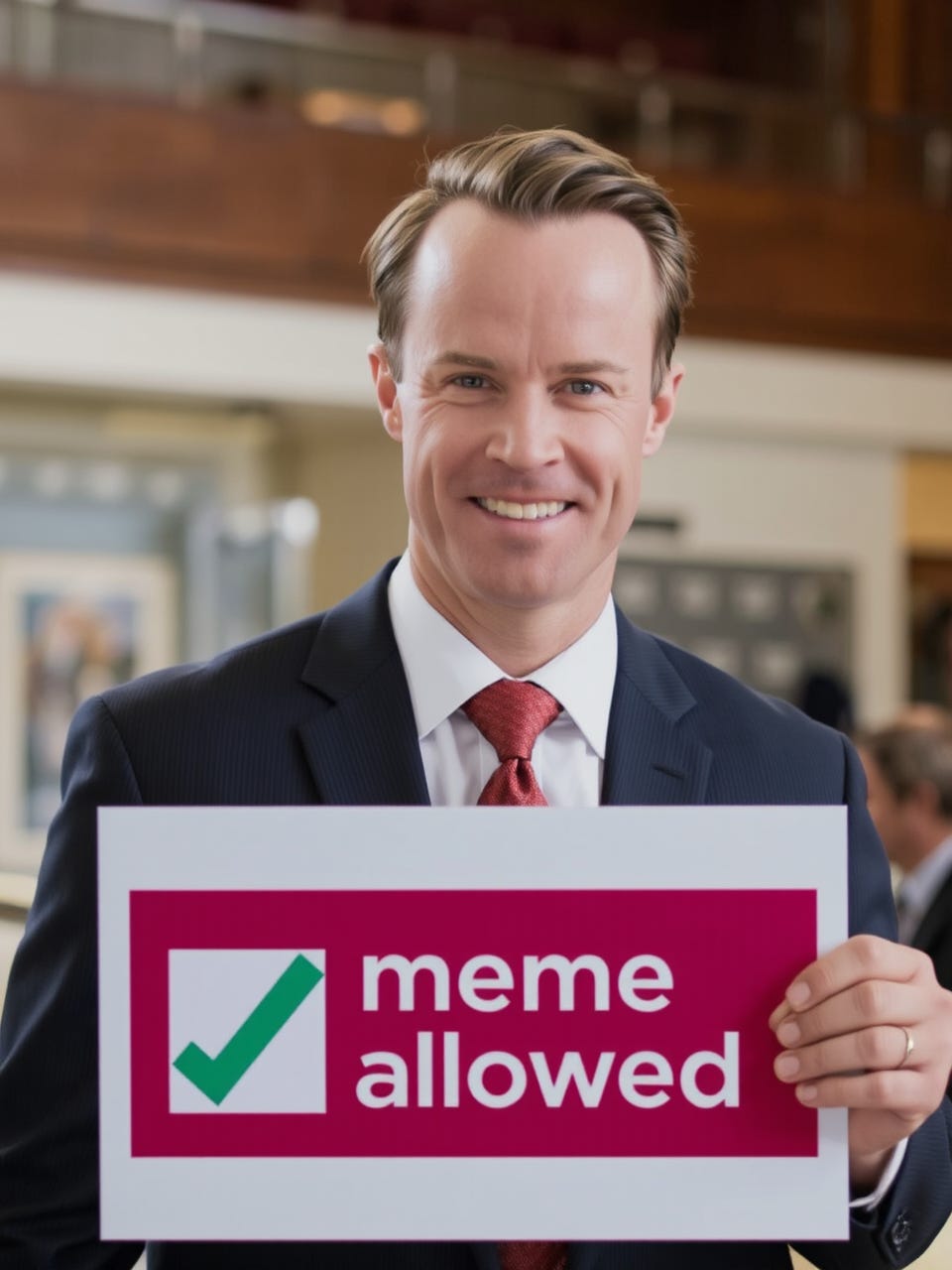
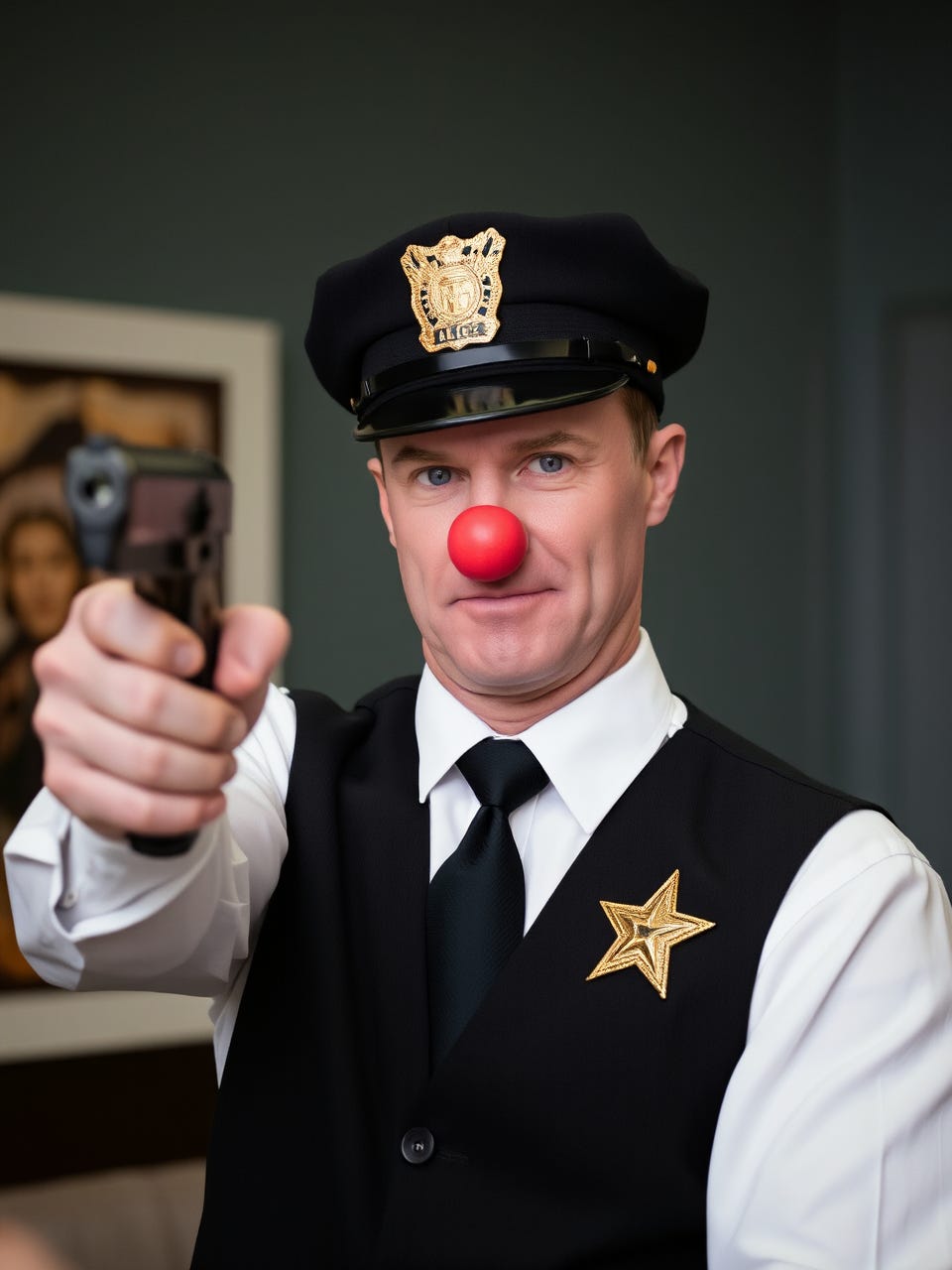

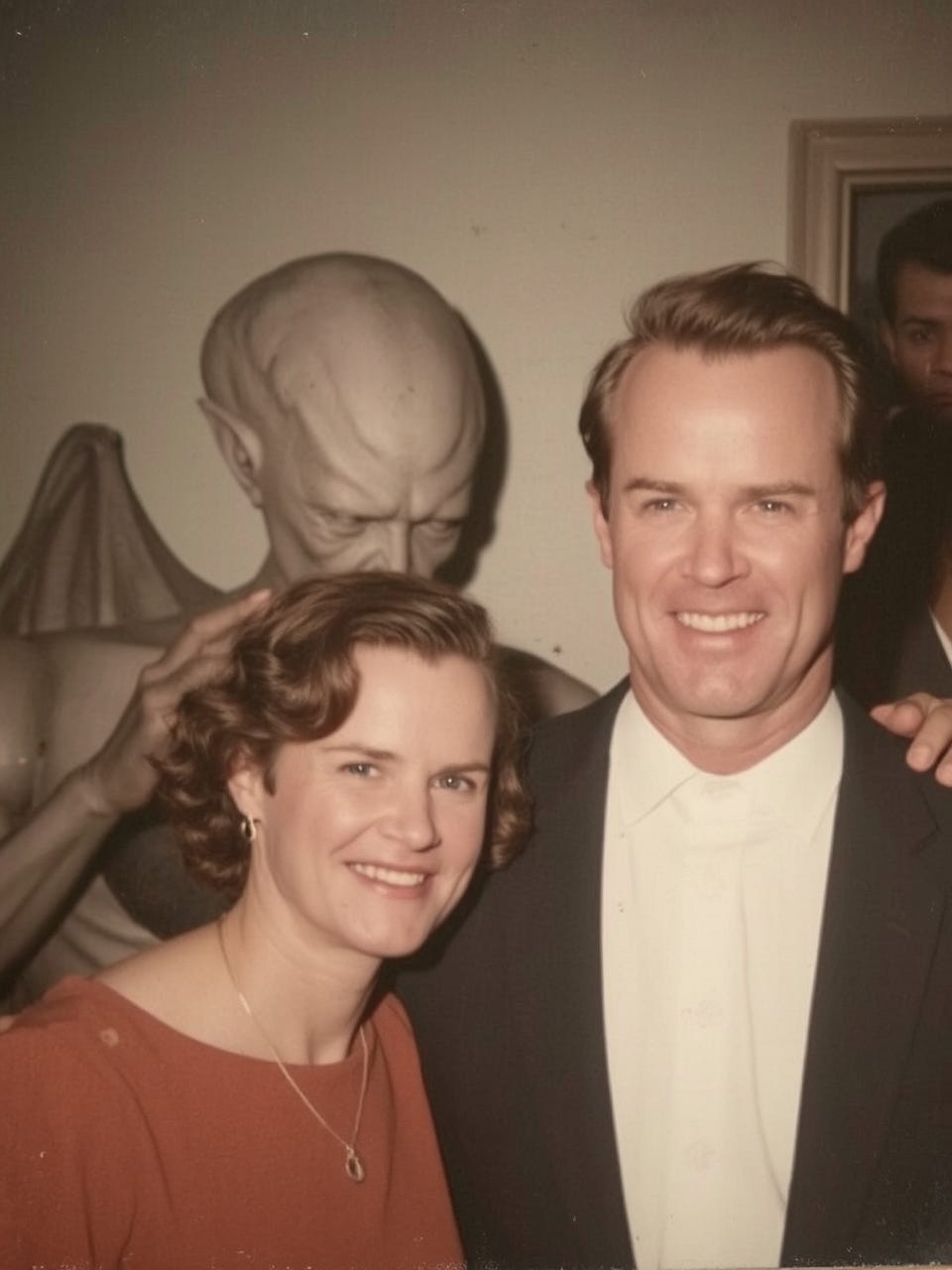
In b4 boomer posts, “I have a right to bear memes!”
If King Dade III had his way, those memes you jest posted would get you life in Huntsville. But you would have a beautiful view of Sam Houston out your pod's window.